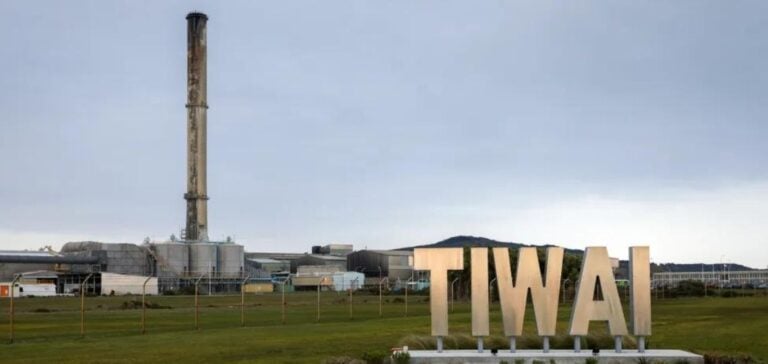The Tiwai Point nuclear power plant in New Zealand has signed 20-year power supply agreements, securing its long-term future. These contracts, signed with Meridian Energy, Contact Energy and Mercury NZ, cover a total of 572 MW of electricity needed to keep the plant running smoothly. This partnership enables Tiwai Point to continue producing high-purity, low-cost aluminum, supported by diversified sources of electrical power.
A collaborative partnership
Rio Tinto Aluminium’s Managing Director Jérôme Pécresse expressed his satisfaction with these agreements, underlining the collaborative spirit between all parties involved. He declared:
“We are delighted that the long-term future of the Tiwai Point plant is secured through these agreements. They give us confidence in the ability of our New Zealand workforce and assets to continue producing competitive aluminum in the global marketplace.”
Rio Tinto is thus pursuing its decarbonization policy, unlike its competitor Glencore.
Local impact and community involvement
These new arrangements include 20-year demand response agreements with Meridian Energy and Contact Energy, enabling Tiwai Point to reduce its power consumption by up to 185 MW if necessary, ensuring a secure supply of electricity for New Zealand homes and businesses. In addition, Rio Tinto has entered into an agreement to acquire Sumitomo Chemical Company Limited’s (SCC) 20.64% stake in Tiwai Point, which will make Rio Tinto 100% owner of the plant upon completion of the transaction.
Strategic transformations
At the same time, Rio Tinto signed an agreement to acquire SCC’s 2.46% interest in Boyne Smelters Ltd (BSL) in Australia, increasing its stake in BSL to 61.85%. These transactions, part of the strategic transformation of SCC’s portfolio, are subject to various conditions, including regulatory approval from the New Zealand and Australian authorities.
Economic contribution and employment
The Tiwai Point power station plays a crucial role in the local economy, contributing NZD 400 million, or 6.5% of the Southland region’s GDP. It employs around 1,000 full-time staff, with a further 2,200 indirect jobs. This economic support and community involvement are key to the future of the plant and the region.
These developments testify to the solid collaboration between industrial partners and local communities, ensuring sustainable and economically viable aluminium production. The prospect of stable renewable energy strengthens Tiwai Point’s position in the global energy transition, illustrating the importance of strategic partnerships for the sustainable development of the sector.






















